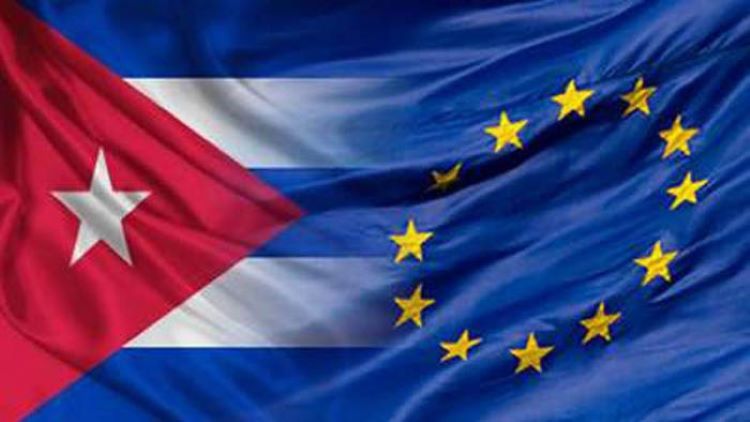Roberto Veiga González

Lawyer and Political Scientist / Collaborator of Fundación Alternativas
This analysis addresses the controversy surrounding the Political Dialogue and Cooperation Agreement between the European Union (EU) and the Republic of Cuba, sparked by demands for its suspension from European sectors and the Cuban opposition. In contrast to this position, we present a perspective defended by other actors in the Cuban opposition, who propose revitalizing the agreement as a means to contribute to the well-being of the Cuban population. The following section examines the foundations, implementation, and challenges inherent to this bilateral framework, with the aim of arguing for its continuation and strengthening, with particular emphasis on the inclusion of autonomous Cuban civil society and the effective promotion of human rights and sustainable development.
In my opinion, the Political Dialogue and Cooperation Agreement between the EU and Cuba, signed in 2016, represents a highly important bilateral framework. Its central purpose lies in the articulation of shared interests and the promotion of collaboration in multiple areas that I consider vital for both parties. This instrument aims to involve a broad spectrum of EU and Cuban actors and defines specific management mechanisms that I consider essential for its proper implementation. However, its effectiveness and legitimacy are currently under debate.
Fundamentally, the agreement establishes the channeling of EU cooperation with Cuba in areas that I consider strategic, namely, democracy and sustainable development. Regarding democracy, joint efforts would be structured around human rights, strengthening the rule of law, support for civil society—an element that I consider crucial—the promotion of education, the promotion of good governance and transparency, the modernization of public administration, and the advancement of sectoral policies. In the area of development, the focus would be on technology transfer, sustainable development, the promotion of decent employment, social protection, and attention to vulnerable populations, aspects that I consider essential for Cuba’s progress.
Furthermore, Cuba reciprocally commits to cooperate with the EU in the fight against transnational threats. This commitment includes arms trafficking and proliferation, terrorism in all its forms, transnational organized crime, human trafficking, drug trafficking, and money laundering, areas in which international collaboration seems essential to me.
Therefore, the implementation of this agreement requires the participation of a wide range of bilateral actors. In the case of Cuba, this would include the government and public institutions at all levels, along with diverse civil society, including scientific, technical, cultural, artistic, sports, friendship and solidarity associations, social organizations, trade unions, and cooperatives. Regarding the European component, the development agencies of EU Member States, international organizations and their specialized agencies, as well as the many expressions of European civil society would be involved.
The document establishes a Joint Council, composed of ministerial representatives from the EU and Cuba, to oversee and make binding decisions on the agreement. The presidency of this body rotates at each meeting between the two parties. For its operation, the Joint Council is supported by a Joint Committee, composed of high-level officials representing both delegations.
While official statements from the EU and Cuba have highlighted progress and mutual satisfaction in various aspects of cooperation—reinforced by the visit of the EU High Representative in 2023—the reality of the agreement’s implementation has provoked a variety of reactions and concerns in certain segments of both societies. Various Cuban groups, marked by ongoing political and socioeconomic challenges, have expressed doubts about the tangible benefits of the agreement and have even called for its annulment.
Their position, based on a political vision that promotes the isolation of the island, is based on the premise that the adverse effects on the population will ultimately erode the established power. As a matter of principle, I oppose this strategy that instrumentalizes the well-being of the people in political struggle, which has always struck me as vile. And, in the case of Cuba, the history of almost seven decades demonstrates its resounding failure.
At the same time, other Cuban opposition groups, while critical of the government, defend the need for constructive and urgent—but realistic—dialogue to achieve pragmatic solutions, always prioritizing the defense of fundamental freedoms as a non-negotiable principle to alleviate the suffering of the population. These sectors, while recognizing the value of political pressure, do not consider the complete cessation of dialogue and cooperation a strategy that leads to liberation or positive change.
However, their analyses in this regard should be considered. They reveal that substantive cooperation on human rights and democracy promotion has been limited in scope and impact. Likewise, while they recognize specific collaborations in the business or commercial sphere, they doubt that they have had a significant impact on the quality of life of the majority of the population. Regarding civil society, they perceive that the benefits have been limited to specific local or religious experiences, and they point to restrictions on exchanges only between Cuban parastatal entities and EU institutions. This leads them to question the scope and effectiveness of the declared cooperation, as well as the transparency in the management of the funds allocated for it. However, instead of proposing the cancellation of the agreement, they advocate for its revitalization.
They point to a central critical point in the limited inclusion of autonomous Cuban civil society, that is, those not affiliated with the Cuban Communist Party. This contrasts with the support that a significant portion of this civil society gave to the agreement and with the fundamental commitment to promoting citizen participation. The participation of independent actors appears to be limited to specific situations where there is temporary official tolerance, as in the current case of certain private entrepreneurs.
Regarding European investors in Cuba, they recognize the logic of requiring them to operate within the legal framework in force on the island, as acting otherwise would be unacceptable interference, as would their intervention in Cuban domestic politics. However, applying this same logic, they argue that European investors would be violating the principles and objectives of the EU-Cuba agreement, especially those concerning decent work, social protection, and human rights, if they approach their presence on the island exclusively from a mercantilist perspective.
In conclusion, I support the position of a significant sector of the Cuban opposition that does not see the need to repeal the agreement. I also support their request that both the Joint Council and its Committee provide transparent and public accountability for the achievements and obstacles in its implementation. Likewise, I consider it crucial that the EU more clearly and rigorously define the mechanisms for managing the agreement, in line with its initial objective and taking into account the experience gained over these years.
From my perspective, it is essential that autonomous Cuban civil society, in its full diversity and as formally contemplated in the agreement, play a central role in its development and implementation. Otherwise, there is a serious risk that the Political Dialogue and Cooperation Agreement between the EU and Cuba will become a mere instrument of support for the current power structures, frustrating its potential to contribute to the well-being of the Cuban people.
